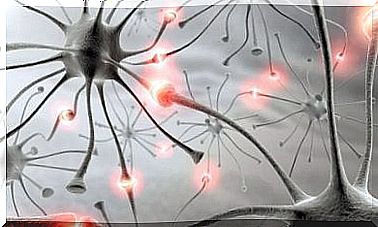The Onset Of Alzheimer’s Disease – Can It Be Stopped?

Alzheimer’s disease is one of the most worrisome diseases of recent decades due to an increase in the number of diagnoses. We do not know the exact triggers or causes of this disease. What we do know is that symptoms increase rapidly.
This disease wreaks havoc in the lives of patients and relatives. Therefore, many people ask if it is possible to stop the degenerative process.
Today we help you answer this question.

What is Alzheimer’s disease?
The brain acts as a multifunctional center. Seen as a whole, they are responsible for controlling all organs in the body.
It interprets external stimuli to send out signals that trigger responses in the muscles, bones, organs, and glands.
Being able to walk, remembering various facts or even being thirsty. This is all because of your brain, but can be influenced by age.
It is a neurodegenerative disease in which a number of symptoms of dementia appear. In general, it is associated with aging, but it can also affect young people if they have certain risk factors.
In medical terms, the term “dementia” refers to clinical cases in which symptoms such as loss of intellectual function or memory occur.
Symptoms of Alzheimer’s Disease

In Alzheimer’s disease, dementia seems to be the main symptom of a severe deterioration of nerve and brain cells.
As this degenerative process progresses, many patients show a marked change in their daily behavior and personality. Also, in more severe cases, they can develop serious personality disorders.
The International Alzheimer’s Association has created a list of “The 10 Signs of Alzheimer’s Disease”. It describes the most common signs in patients, namely:
- Memory problems that, as a result, make daily activities more difficult.
- Difficulty solving simple problems.
- Difficulty performing normal routine tasks.
- Loss of spatial or temporary consciousness.
- Problems interpreting images.
- Problems with spoken or written language.
- Placing objects in strange places or having trouble finding things.
- Difficulty in making decisions or loss of sanity.
- Loss of initiative or motivation.
- Changes in mood, behavior, or personality.
The causes of Alzheimer’s disease

There is still no unanimity among medical specialists about the main causes of Alzheimer’s. Aside from aging, they observe certain risk factors, such as:
- Tobacco..
- Alcoholism.
- Use of toxic substances such as drugs.
- Unbalanced diet.
- Sedentary lifestyle.
- Being overweight or obese.
- Poor sleep habits (poor quality sleep or not enough sleep).
- Eating disorders such as anorexia nervosa.
- Cardiovascular problems such as arterial hypertension.
- Brain injury caused by accident, trauma, or illness.
Is it possible to stop Alzheimer’s disease?

When we talk about stopping the onset of Alzheimer’s disease, we are generally talking about slowing the onset of symptoms.
However, more important than slowing down the degenerative process is stopping the beginning. After all, the progression of the deterioration in cases of dementia is extremely rapid.
Preventing Alzheimer’s means removing the risk factors from your routine.
That’s why we offer below some suggestions of changes you can make in your daily habits to take care of your body and mind.
Some suggestions
- Follow a balanced diet. Avoid overeating and empty calories.
- Get regular exercise (at least 30 minutes a day).
- Maintain a healthy body weight to avoid being overweight or developing cardiovascular problems.
- Consume foods rich in vitamin C and antioxidants. This group includes citrus fruits, red berries, green leafy vegetables, nuts, fish with a high content of omega 3 and 9 fatty acids, etc.
- Reduce your daily stress levels with exercise, meditation, yoga, a hobby, etc.
- Make time to relax and enjoy yourself. After all, overloading yourself with work is counterproductive to your health and cognitive skills.
- Sleep eight hours a day and make sure your sleep is of good quality.
- Maintain healthy relationships and spend time in a positive environment.
- Maintain a good level of self-esteem, avoid negative thoughts, and don’t be ashamed to seek psychological help when you feel you need it.
- Drink alcohol in moderation, do not smoke and do not use harmful substances.
In addition, women going through menopause should consult a doctor about estrogen hormone supplements. Scientists believe that the reduction in natural production of estrogen may make the onset of Alzheimer’s more likely.
Featured image courtesy of wikiHow.com








